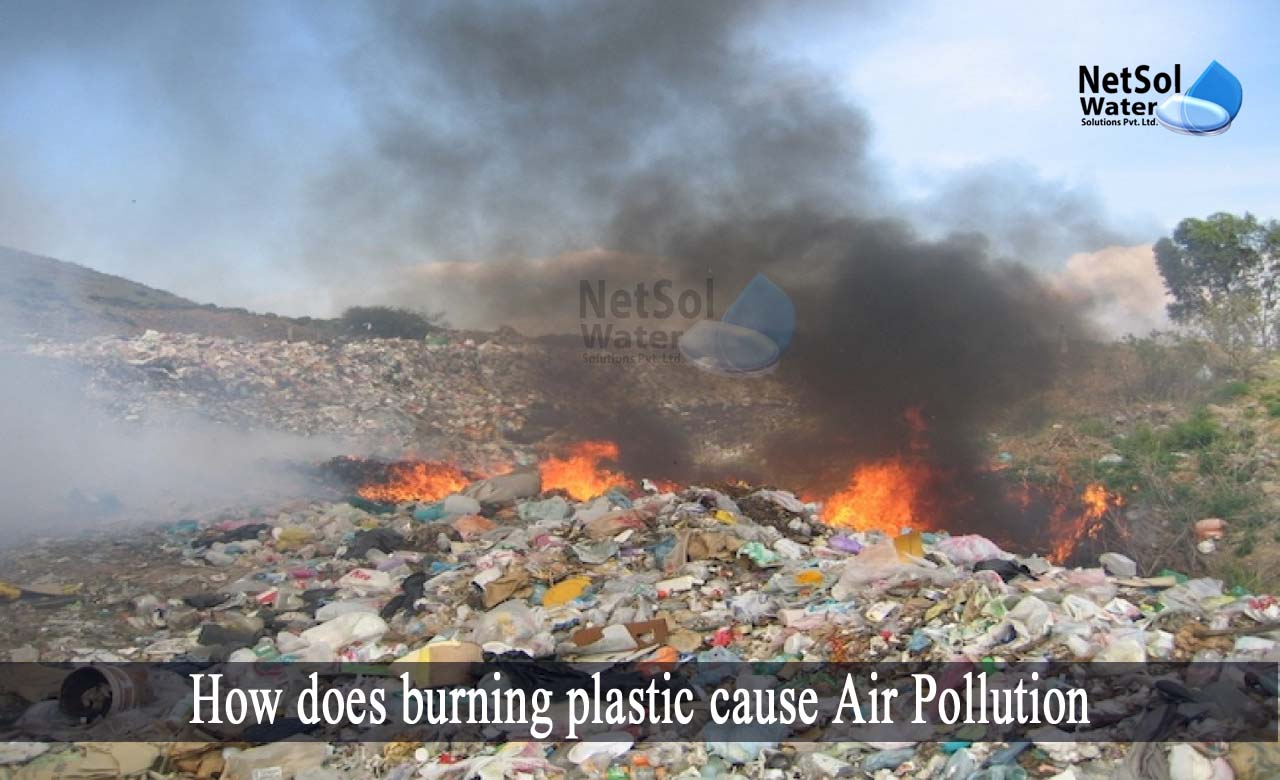Every face of our lives involves plastic, which is manufactured in excess of 300 million tonnes annually. Today, millions of people are impacted by air pollution brought on by the burning of plastic.
How does burning plastic cause Air Pollution?
Plastic is the most pervasive waste product to have ever existed on our planet. The effects of this waste can also be seen clearly in the detritus in landfills and oceans, as well as in the microbeads from personal care items that contaminate marine and land-based food chains.
A number of low and middle-income nations have resorted to the unregulated practice of burning plastic, in the open to dispose of this persistent plastic waste. While, this method of eradication undoubtedly eliminates the physical presence of plastic, it does leave the earth with another issue, of toxic air pollution caused by burning plastic, which is the main environmental cause of death and sickness.
Plastic’s role in toxic air pollution
Black carbon and fine particles, which are major contributors to climate change, are released in huge quantities when plastics are burned in an open fire. Dioxins, furans, polychlorinated biphenyls (PCBs), polycyclic aromatic hydrocarbons (PAHs), and polychlorinated biphenyls (PAHs), are some of the most dangerous substances that are frequently discharged into the air, while burning plastic waste.
What should be our role in minimizing plastic waste?
Despite, the unsettling nature of these facts and the potential for a gloomy future, there is still hope! The World Health Organization (WHO), the United Nations Environment Program (UNEP), and the Climate and Clean Air Coalition (CCAC), are committed to accelerating efforts to reduce these air pollutants.
While, corporations undoubtedly are taking actions to address this serious issue, as informed citizens, we can also start at the local level and contribute to making the world greener, cleaner, and healthier.
How is the obvious question to ask!
The three golden rules of sustainable living—Reduce, Reuse, and Recycling—really do make life pretty simple!
Less of the issue will need to be resolved if we alter our consumption patterns, to produce less plastic waste. Reusing things would enable plastic objects to stay functional for longer, rather than collecting in enormous waste heaps and harming the environment. Finally, by correctly disposing of plastic waste so that it may be recycled, communities will be spared from employing this dangerous method of waste removal.
Conclusion
In addition to being better for the environment, community-based approaches like decentralized waste separation and collection, increased resource recovery, composting, recycling, and waste reduction have also given millions of waste workers jobs, and are being maintained for a small fraction of the price of what it would cost, to construct any incinerator to burn plastics.
Therefore, let's work together to make a few small modifications to our way of life, in order to significantly better our planet and relieve it of the burdens of pollution!
How can we assist?
In the current industrial scenario, an air pollution control system is required due to strict compliance standards, increasing enforcement, and rising community pressure. Netsol Water, being a responsible firm, pledge to maintain our facilities in greater conformity with current regulations, and continually look for ways to reduce their negative environmental effects.
You need a company with a deep understanding of current and upcoming environmental concerns, as well as someone with extensive industrial experience and broad expertize in emission control technologies. As your ally, we can develop a comprehensive solution to help you fulfill your upcoming air pollution control standards, thanks to our insight and experience. For additional information, you can contact our environmental cleaning experts at +91 9650608473 or get in touch via email at enquiry@netsolwater.com.



